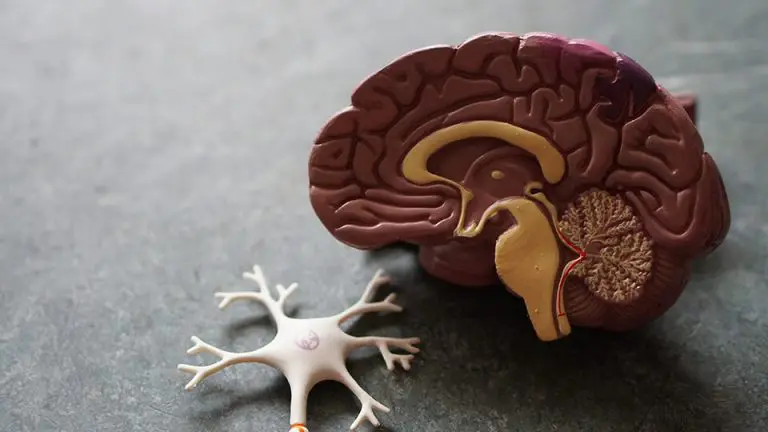7 Sleep Benefits
1. Sleep can help you lose weight
You may feel hungry if you don’t get enough sleep. Bad sleep can affect your hormones, including ghrelin (which can cause hunger) and leptin (which can lead to weight gain). Studies show that obesity is linked to poor sleep.
A sleep schedule that is less than seven hours is bad for your health. Different people require different amounts of sleep. The quality of your sleep is just as important as the hours. Seven hours of sleep is a good rule of thumb.
Poor sleep can lead to obesity, which can also cause weight gain. This creates a vicious cycle that is difficult to break. To avoid future health problems, get enough sleep.
You may even find it harder to sleep. The activity in the brain’s frontal lobe decreases making you more impulsive. You are more likely than others to eat calorie-dense, fattening foods if you have less self-control.
People who are less sleepy eat more calories. You will eat more if you’re awake longer and feel tired. You will also burn less calories per day if you don’t get enough sleep.
You may lose more muscle and fat if you limit your calories and sleep too little. Dieting can cause muscle loss, which is bad for your health. You should get enough sleep when you’re on a diet to lose weight without compromising your muscle mass.
Being tired can lead to weight gain, as it makes you less active. You might be too tired to exercise, or skip it altogether.
Correct sleep habits will make athletes perform better. A better night’s sleep will improve their reaction time and endurance.
2. Cortisol levels rise when there is not enough sleep
If you don’t get enough sleep, your stress hormone cortisol will increase. Cortisol can also be associated with weight gain and other problems.
Your body will want to gain more fat the more you have cortisol. Lower stress is one of the greatest benefits of sleeping.
Low sleep quality can lead to high levels of cortisol in the afternoon and evening. Your sleep quality can be affected if your cortisol levels are high at night.
Cortisol is what makes you want to fight. Your body expects you to fight, run away from, shout and argue or deal with conflict if your cortisol levels are high.
Cortisol is a hormone that your body releases when you feel in danger. You will need to take a risky and intense action soon. Cortisol can sharpen your senses and help you win arguments, but it can also cause you to lose your mind. A high level of cortisol can cause your body to go into fight-or flight mode, which can lead to serious health problems.
Cortisol is known to make you more alert so your body may produce it after a bad nights sleep. You might have a bad night’s rest the next night.
You can end a vicious cycle, it is possible to be a good person. Prioritizing sleep is the key. Spend some time relaxing (no screens, alcohol) before you go to bed at night. Your cortisol levels should drop after prioritizing sleep for a while. You should experience better sleep.
3. Lack of sleep can lead to insulin resistance
Insulin resistance is a condition that makes it difficult for your cells to properly process sugar. High insulin resistance is common in unhealthy people, while high insulin sensitivity is common in healthy people. Insulin resistance can lead to diabetes and other diseases.
Many chronic diseases are associated with insulin resistance. Insulin resistance can lead to a shorter life expectancy and increase your risk of having a stroke or heart attack. The insulin sensitivity of a person is often correlated with their overall health.
Limiting sugar is the best way to maintain insulin sensitivity. But sleep is also important. Your cells will not be able to properly deal with insulin if you don’t get enough sleep six nights in succession.
4. The brain is detoxified by sleep
Scientists had difficulty understanding why we sleep until recently. One reason is that your brain can’t easily detoxify itself while you are awake.
When you fall asleep, brain cells shrink. This allows cerebrospinal liquid to flow through your brain and eliminate toxins. Because there is not enough space between cells, cerebrospinal fluid can’t pass through your brain while you are awake.
Scientists have only recently discovered that this brain-cleansing system is called the glymphatic. Even though it may be an evolutionary disadvantage, the glymphatic systems could explain why we sleep.
Over the millennia, many of our ancestors died because they needed to sleep. We could not evolve to require less sleep, as it is difficult to clean the brain when it is conscious. Alzheimer’s disease is one of the most serious diseases that the glymphatic systems removes.
5. Cardiovascular disease can be prevented by getting more sleep
You can die from diseases caused by sleeping too little or too often. Most of these deaths result from cardiovascular disease. Sleeping well can help you live a longer and healthier life.
A lack of sleep can be very detrimental for your health. It is not just a cause of tiredness, but it can also lead to insomnia. A 48% greater chance of developing heart disease is if you sleep less than 5 to 6 hours each night. Heart disease risk can also be affected by the quality of your sleep.
Poor sleep can increase the death rate for those already suffering from heart disease. Researchers don’t know how sleep deprivation affects the heart. It is possible that lack of sleep can lead to inflammation which in turn leads to heart disease.
Many researchers are skeptical about the idea that too much sleep can cause illness. But, excessive sleep duration has been linked to worse health.
Poor health may lead to long periods of sleep, but it doesn’t necessarily mean you have health problems. Although researchers aren’t convinced that excessive sleep can cause problems, it is a sign of poor physical health.
6. REM Sleep
REM, also known as rapid eye movement sleep or rapid sleep, is the portion of sleep that you can dream. Mental health is dependent on your ability to dream. Your mental health can suffer if you don’t sleep enough and don’t have dreams.
The brain’s ability to make sense of the day’s events is what REM sleep appears to be. Your brain connects all the events from that day to other memories.
This is what keeps you sane. If it doesn’t happen, your mental health will suffer. Research on rats shows that REM sleep is associated with a lower life expectancy. Healthy brain function is one of the biggest benefits of sleep.
Research on REM sleep, and not just all sleep, shows that poor sleep can lead to weight gain. Your ability to learn is also affected by REM sleep. Insufficient sleep can prevent you from learning a new skill.
People who don’t get enough sleep sometimes have trouble getting enough REM sleep. It can interfere with dreams.
Alcohol is not recommended for sleep. While it might make you fall asleep quicker, it can ruin your sleep quality.
You should go to bed and wake up at the exact same time every day. You will get less deep sleep if you go to sleep later than usual on some nights.
7. Better sleep raises your testosterone
Your hormone production may stop if you don’t get enough sleep. Your body produces the majority of its testosterone when you’re asleep so your T levels will be highest in the morning, and then drop towards the end of the night.
Both sexes need testosterone. Deficient testosterone can also affect women.
Testosterone increases energy, recovers from exercise and gives you more confidence.
You can also get better sleep by using testosterone.
You can overcome this problem by putting your best foot forward. You will get better results from your exercise if you sleep well.












